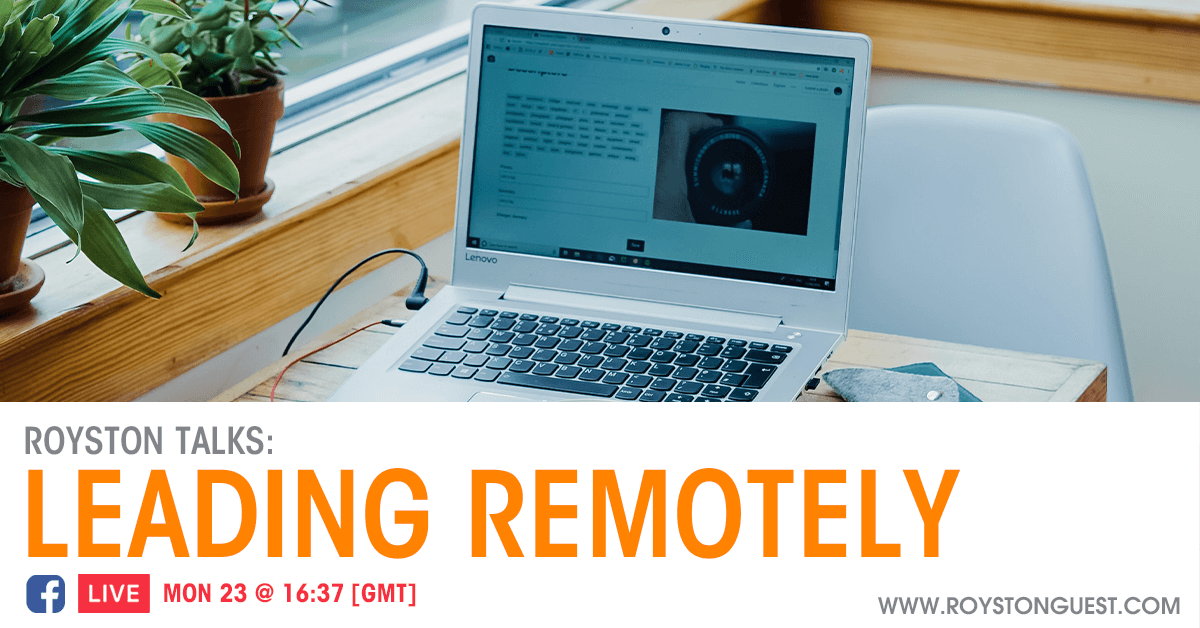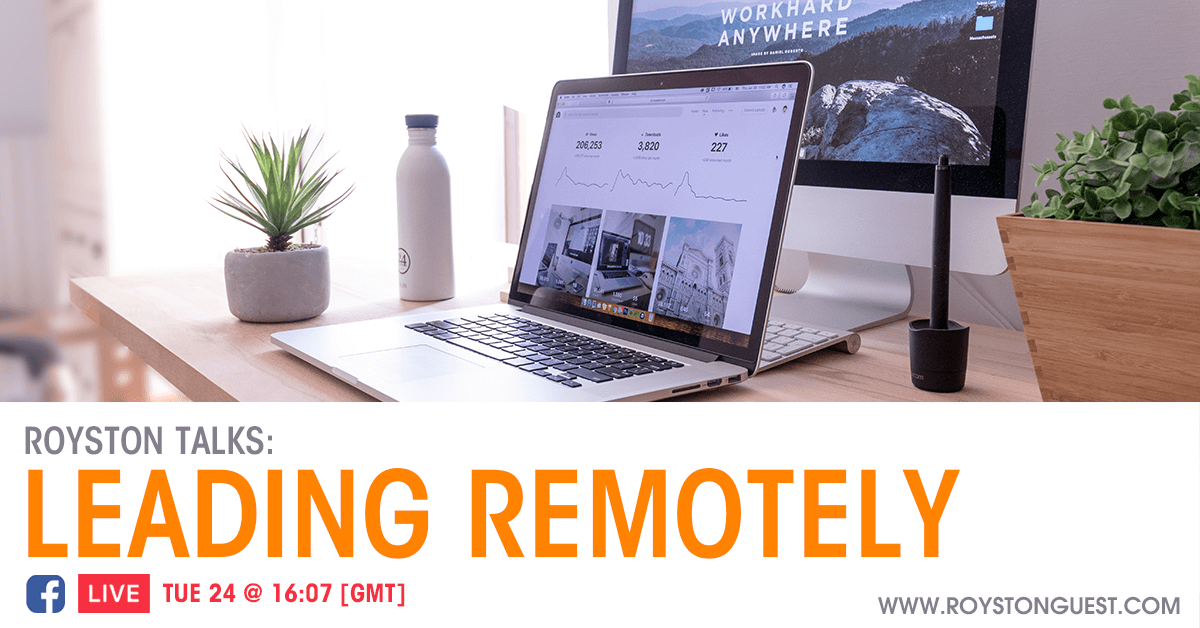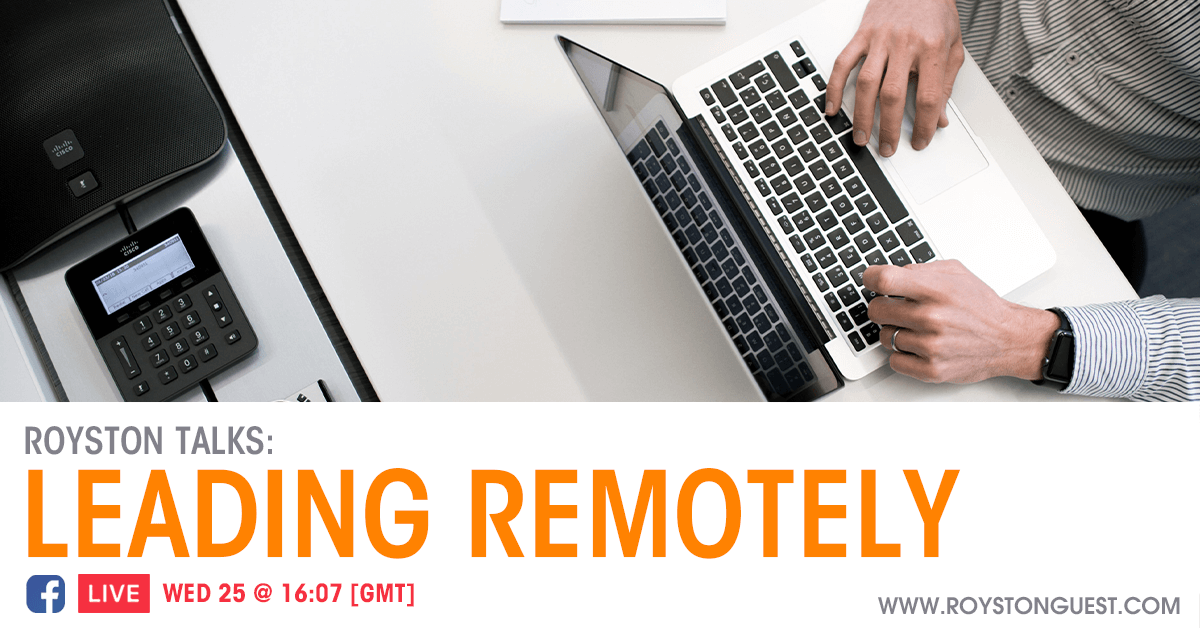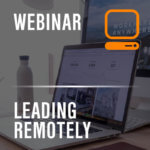Through the many uncertainties that we are facing, we have to ensure that as we lead remotely, we are empathetic and looking through other people’s lenses to see their angles and perspectives.
Here are seven fundamental principles to help you lead remotely in these challenging times;
Principle one – Accept it’s not going to be a ‘normal’ working day. Design your day by factoring in the different dynamics and tensions that we are all trying to manage. You cannot manage people to a time clock; you will need to allow flexibility and trust. If a member of the team needs to take a couple of hours off in the day to support their family, let them. They will extend their workday to ensure they perform their role.
Principle two – Do your most important work at your most productive time of day. Anything that requires significant brainpower ensures you get it done at the best time of day for you.
Principle three – Design your high-performance days and week based on your new norm, whatever that might look like. Lock your days into a routine. Keep testing what is working and what you need to tweak.
Principle four – Physically imagine that you are going to work each day. You need to find that mental switch from your personal life to your work life even though you are remaining in the same space.
Principle five – Allocate a dedicated office space within your home. Create that space that you can ‘physically’ and mentally go to work every single day.
Principle six – Discipline. Be disciplined and give yourself focused bite-sized chunks of time within your working day. Set yourself mini-deadlines to keep focused.
Principle seven – Be kind to yourself. We are all operating under exceptional circumstances, tension and pressure are inevitable. If you need to take time out to refocus, do it. Take regular small breaks through the day to keep you energised.
In these present times, I have no doubt you are having conversations that are difficult and challenging, and some which you may not want to have at all. Whether it is conversations with your family, partner, children, work colleagues or your boss, it is not just about WHAT you say; it is about HOW you say it.
If your communication is not clear, crisp and respectful, and you’re not proactive in communicating, then imagination and hear-say kicks in, and not usually in a positive way. If people are second-guessing what will be said, you will find many mental calories burnt as individuals try to work out what is going to be said (or what they think should be said!).
Over-communicate so that people are not second-guessing.
Remember, people may listen, but they don’t always hear or understand.
When communicating, make sure people are not just listening, but they also understand your messages. Many of us have selective hearing, we remember what we want to remember, or we remember what justifies or confirms our viewpoint. Anything we hear contrary to this, we usually dismiss until we hear the same message time and time again. It is essential to reinforce messages regularly and follow up verbal communication with written communication—a summary email to the team, for example.
How you set yourself up to work from home and how you lead remotely will be a test of your leadership capability.
Working remotely has many benefits from a work-life blend perspective; flexibility, limited work distractions, zero commuting. However, working from home can create feelings of isolation and loneliness, more family distractions plus the feeling that you’re always ‘on’ as you try to switch roles from work to family within the same environment. If you’re working from home on your own or in a small space with no natural light or garden, those feelings of isolation and loneliness may be heightened.
Over-communication during these challenging times is so important. Regular communication is your vehicle to create connections and social interactions. You must schedule regular wellbeing check-ins with your team. Asking questions that matter; “how are you?’, ‘How are your family’ ‘How are you feeling?’ ‘How are you coping?’. Show that you care, before you dive straight into workload and productivity.
This quote by Theodore Roosevelt comes to mind…‘People don’t care how much you know until they know how much you care.’
Earlier this week, I spoke about how you need to ‘go to work every day’ by having that switch from home life to work life. From a wellbeing perspective, you also need to know how to reverse this. You need to go home every day. You need to switch off from work; you need to ensure that you do not let home and work fusion into one. Be clinical in the way you think, even if it is just crossing the door threshold from your work environment to your home environment where you intentionally make that switch mentally.
Remember, your greatest wealth is your health. This is even more important now than ever.




